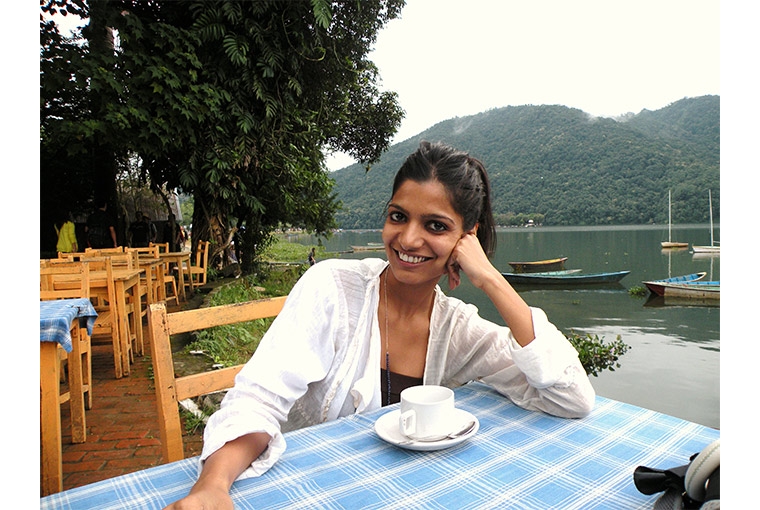
Threads of Wind, Spring Summer '18

Threads of Wind, Spring Summer '18
Zen is a Chinese school of thought that in design, translates to an intensely personal, severely pared-down search for meaning that elevates simplicity to an art form. Young label Buna, takes from this ancient way of living to craft an urban sanctuary based on ethical fashion. The one-year and two-collection old brand was launched in 2017 under Pallavi Shantam’s creative vision. It is a blend of ethereal, adventurous with a subtle bohemian vibe.
After almost fourteen years of experience in the industry, the Delhi based designer created the label, full of inspiration from her travels. Her passion for slow design processes and finding modernity in traditional techniques formed an expression in Buna.
In our conversation, she describes passionately the purity of creating with textiles that are woven, spun and crafted by hand. And highlights the challenges she confronted where the fabric dictates her organic design process.
On the journey
Being brought up in a small town somewhere in Uttar Pradesh, Pallavi experience a very simple and slow upbringing. She has always been drawn to colour and craft that surrounded her and her family. ‘I always love my own musing with nature and colour’, she continues.
Though she graduated from National Institute of Fashion Technology as a fashion designer in 2002, she went on to work as a visual merchandiser. She formed her firm People of Yellow and worked with various international brands as a visual merchandiser, designed a few restaurants and even ran a handmade shop in Gurgaon called Soul Cabin. For almost fourteen years she also conceptualised fashion collections for various export houses.
It was 2016 when she had the strong urge to start something of her own and begin a new chapter in her life. She then stopped taking other projects and took off to Kutch, Rajasthan and Bengal—where she found the ground of her label Buna.
On being an ethical brand
For a lover of Indian craft traditions, following ethical process was an instinctive choice. ‘I decided to work with artisan communities rather than indulging in off the shelf sourcing which to me, has no soul’, she explains. ‘As a designer it gives me endless possibilities to explore because the product is a hundred per cent handmade; so I can really design it from scratch.’
The making
From the expansive countryside of Bengal to Tagore’s poetry, Pallavi has collected experiences from her travels that make their way into details. The 2018 collection “threads of wind”, is created with the floaty and wispy quality of Jaamdani, one of the finest muslin textiles of Bengal. It also plays with motifs of birds and clouds that are interwoven on a fine muslin base. She has also have created a geometric yarn dyed stripe that flows through the line.
‘For other collections, I work with mulmul khadi—a handspun and handwoven fabric—and incorporate organic process and natural raw materials to make soft, breathable fabrics. Our block printing takes place in Bagru, Rajasthan where a small Chhippa community does very rich block printing with natural dyes. Then the finished textiles come to our Delhi workshop where kantha and applique handwork is finished on the garments by skilled female artisans.’
From the conception of textiles to waste generation, Pallavi ensures that she handles the entire process as ethically as she can.

Ellipse Crochet Table Lamp

Wings Macramé Hanging Lamp
Buna supplements
Buna lighting combines the purity of handmade with an attentive use of materials and artistic minimalism. For the limited edition "Slow Yarn”, the rooted crochet and macramé crafts are translated into contemporary and luxurious home accents. Pallavi’s experience with these craft skills began in her hometown of UP regions, Meerut and Hapur.
She has created these pieces to suit a modern living with the launch collection that explores intricate knotting and weaving techniques, structural shapes and a light colour palette of only ecru—naturally dyed yarn. Woven through the objective of Buna, the aim is to extend the contemporary take on the rich traditions of these versatile crafts in lifestyle products.
The aesthetic
The clothing brings in a sublime sensibility to heritage textiles and craft traditions. Besides her own individuality and story, the idea of living mindfully and consciously is reflected in the ethos of Buna.
Other than nature and art, Pallavi’s inspiration comes from yoga, meditation and mindfulness. As a believer and follower of the Zen school of thought, her forms and silhouettes are kept minimal and understated, yet rich. Comfort of the wearer and the fabric’s movement drive her design sensibilities.
She adds, ‘I’ve always spent time in nature and it resonated in my design and work. Because my clothing has been created so slowly, I also want to bring in that luxurious quality in the form, construction and experience.’
Now and next
Currently, Pallavi is working on a zero waste product line where she will create products out of the garment cutting wastes, which are being collected. She is very excited to introduce a small edit of the up-cycled line for which sorting and assembling of the fabric scraps is well underway.
Also in the making is, a mending service at Buna. To elongate the lifecycle of garments and minimise wastage, the brand will offer repairs in their Delhi studio to all Buna clothing.
For their upcoming seasons, Pallavi is looking forward to some special collaborations.
More collections and Shop here.
Text Garima Gupta

Pallavi Shantam